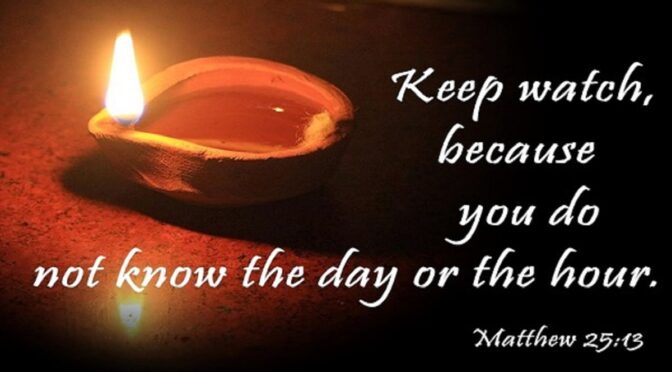Contents
Introduction
As the liturgical year gradually comes to an end, the readings also reflect such an end. In the previous chapters of the gospel, according to Matthew, Jesus used many and different stories to illustrate what the kingdom of God looks like. Matthew chapters 21–23 contain specific references to the kingdom. In those chapters, Jesus reminded the religious leaders (priests and elders) that those they regard as sinners (tax collectors, prostitutes, and others) make it to the kingdom of God, while they themselves do not (Matt 21:28–32); that due to their unfaithfulness, the kingdom of God will be taken away from them and entrusted to those who know its value, and who will take proper care of it (Matt 21:33–43); that they were not qualified for the marriage banquet (Matt 22:1–14); that they should render to Caesar what belongs to Caesar, and to God what belongs to God (Matt 22:15–22); that God is not God of the dead but of the leaving (Matt 22:23–33); and that the greatest commandment is the love of God and of neighbour (Matt 22:34–40). Matthew, chapter 24, is the beginning of the eschatological series. Here, Jesus alludes to his death and resurrection by citing the temple and advises the disciples to be careful not to fall prey to the false prophets, whose intention is only to deceive and lead people away from the kingdom of God. The 25th chapter of the gospel, according to Matthew, contains at least three interesting and surprising eschatological episodes. They are interesting and surprising because they concern the events of the afterlife, and Jesus appears to be speaking differently. The first episode is an invitation to avoid foolishness and embrace wisdom.
Foolishness and wisdom
Among the ten bridesmaids that went out with their lamps to meet the bridegroom, Matthew specifies that “five of them were foolish, while five were wise” (Matt 25:2). This further specification is very important. The two Greek words mōros and phronimos mean foolish and intelligent. While the opposite of mōros is sophos (wise), the opposite of phronimos is mōros (foolish, stupid) and aphrōn (foolish, senseless). Mōros is a term of reproach. It refers to a foolish and stupid person. That is, someone lacking foresight (cf. Matt 7:26). No wonder the fool says there is no God (cf. Ps 14:1; 53:1). Hence, they are corrupt and do abominable things. Since foresight means providence by virtue of planning prudently for the future, a person who lacks foresight is devoid of prudence and cannot go beyond this moment. Such a person is irrational and intellectually deficient. Conversely, phronimos refers to the quality of a person’s reasoning capacity and thinking, which stems from insight, foresightedness, wisdom, intelligence, and sensibility (cf. Matt 7:24). In describing the attitudes of those who hear his teachings and put them into practice or refuse to listen to them, Jesus uses these two terms: phronimos and mōros (Matt 7:24–27). Foolishness and wisdom are two different attitudes towards life.
Conclusion
The ten bridesmaids represent humanity. The five wise and five foolish ones represent the attitudes of people towards the kingdom of God. The virginity of the bridesmaids refers to the moral purity of people towards God. Anyone aspiring for the kingdom of God must be pure (cf. Matt 5:8; Ps 24:3–4). Taking or not taking extra oil refers to the preparedness or non-preparedness of every person. The lamps refer to our righteousness, which must illuminate every aspect of our lives (cf. Matt 5:15–16). The oil is the grace of God (cf. 2Cor 12:9) that must be allowed to lubricate our lives so that we can be righteous and just. The bridegroom is Christ. The period of waiting refers to the period of our sojourn in this world. The banquet hall is heaven. The idea of waiting until the last moment to purify oneself could be counterproductive. It should be completely avoided because no one knows the day or the hour the bride will arrive (Matt 25:13). The refusal of the five wise bridesmaids to give some oil to the foolish ones and the refusal to open the door for them are not acts of wickedness or a lack of human compassion. It means there is time for everything. It means not compromising your own chances of being saved. You should know when to help someone and when not to. Remember, this is strictly restricted to salvation.
FOR DETAILS, GET YOUR OWN COPY OF THE BOOK “THE WORD OF LIFE: SUNDAY REFLECTIONS” (vol. I)! The reflection for the 32nd Sunday is found on pages 523–532. Happy reading!
For details on how to get it, contact the author on this link: https://m.me/uchennabiblia?fbclid=IwAR2yeg4a6sDGBp9QGkIvKj6FSADumMokN6lshdE0zuo-JHs6qOmlhA7jyHo or email me at: postmaster@uchennabiblia.com or simply send an SMS on 08116100926, and I will get back to you.

